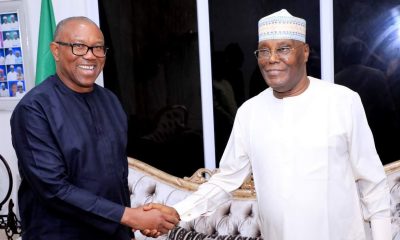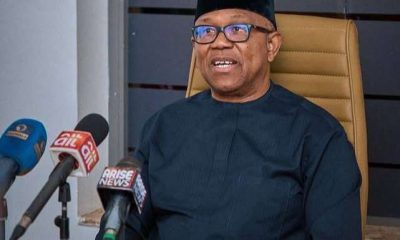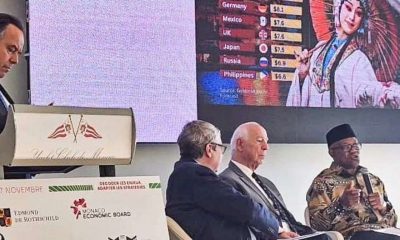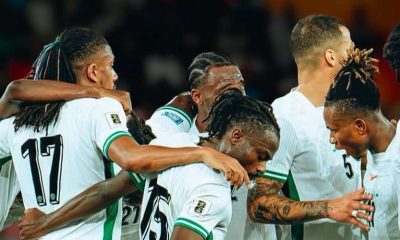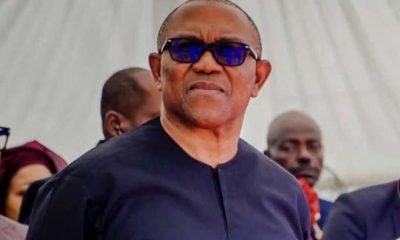Headlines
When Home Becomes Rubble: The human cost of Lagos’ demolition crisis
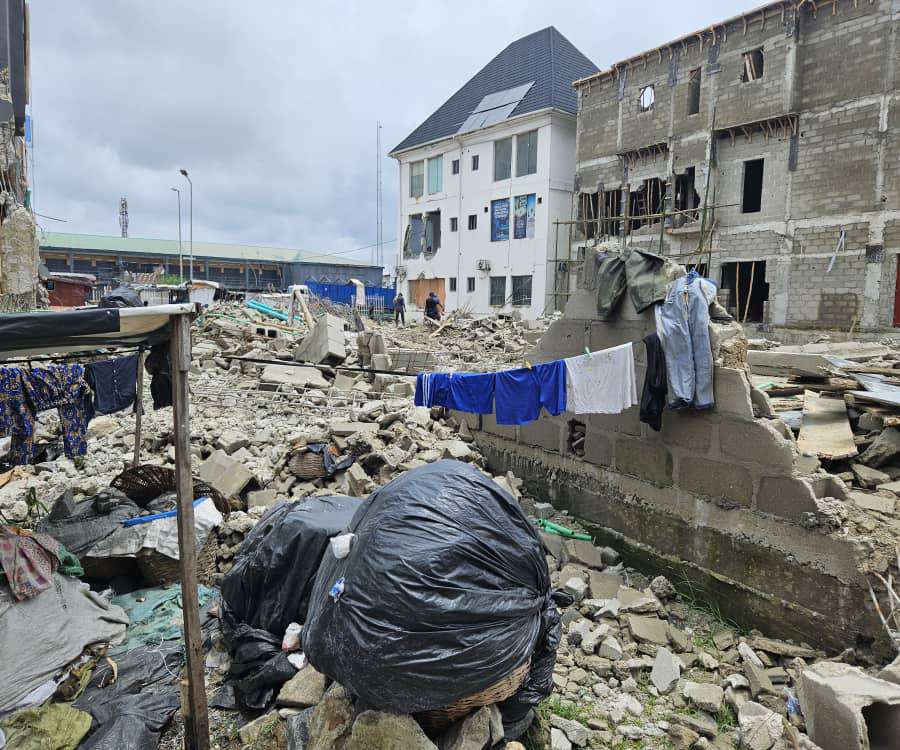
Mrs. Chioma Okafor still remembers the sound. Not the bulldozer’s engine, that came later. But the frantic knocking on her door at dawn, a neighbour screaming that the demolition crew had arrived. No warning letter. No court order slipped under the gate. Just men in yellow vests and a machine that would reduce thirty years of her life to dust by noon.
“I built that shop with my own hands,” she tells me, her voice breaking as we stand where her pharmacy once stood in Lekki. “Every tile, every shelf. My children went to university from the profits of that place.” She gestures at the empty lot, now cordoned off with faded caution tape. “They said the land belongs to someone else. After all these years. After all the taxes I paid.”
She’s not alone. Across Lagos, stories like Chioma’s are multiplying at an alarming rate, and they’re beginning to tell a darker story about a city losing its soul.
The City That Welcomed Everyone
My grandfather used to say Lagos didn’t ask where you came from, only what you could do. He arrived here in 1967, an Igbo man fleeing the Biafran war with nothing but a trade and a belief that Lagos was different. By 1985, he owned three shops in Alaba International Market. He sent all five of his children to school. He paid his taxes every year, never missed a community meeting, and when he died in 2019, people from seven different ethnic groups attended his funeral.
That was the Lagos I grew up believing in. The Lagos where Mallam Usman from Kano could partner with Chief Adeyemi from Ibadan to do business with Mr. Eze from Enugu, and nobody cared about the accent as long as the numbers added up. Where my Hausa neighbour’s daughter married a Calabar boy, and the whole street showed up for the wedding.
But something has shifted. And you can see it in people’s eyes now, a wariness that wasn’t there before.
When Politics Became Personal
Adeola runs a small tech hub in Yaba. She’s Yoruba, born and raised in Lagos, and she’s worried. “Half my investors are Igbo,” she confesses over coffee, speaking quietly as though the walls might hear. “Good people. Brilliant coders. They’ve been asking me questions I never thought I’d hear: ‘Are we still safe here? Should we move the company to Abuja? To Port Harcourt?’
She pauses, stirring sugar she doesn’t need into her cup. “My own father asked me why I have so many ‘non-indigenes’ on my team. My father. The same man who taught me that talent has no tribe.”
The 2023 elections changed something fundamental. When Peter Obi won Lagos State, it wasn’t just a political upset, it was a mirror held up to the city, showing just how diverse, how restless, and how ready for change its population had become. But instead of celebration, what followed was anxiety. Markets burned. Whispers became accusations. And suddenly, the phrase “Lagos is not a no-man’s land” was everywhere, wielded like a weapon.
Then the bulldozers started rolling.
The Demolitions Nobody Can Explain
I’ve visited seven demolition sites in the past three months. What strikes me most isn’t the destruction — though that’s devastating enough. It’s the confusion. The sheer bewilderment on people’s faces when they try to explain why their homes or businesses were destroyed.
“They said my papers weren’t valid,” says Mr. Emmanuel, whose four-story building in Ikorodu was demolished in January. He shows me a folder thick with documents: receipts, land certificates, building permits, tax payments dating back fifteen years. “I followed every rule. Paid every fee. What else was I supposed to do?”
At another site in Ajao Estate, I meet three brothers who’d pooled their savings to build a warehouse. “We’re not rich men,” the eldest tells me. “We’re traders. This was our retirement plan.” He kicks at a piece of rubble. “Now we’re starting from zero. At sixty years old.”
The Lagos State Government maintains these demolitions are about urban renewal, illegal structures, and proper city planning. But when I ask officials for the list of targeted properties, the criteria used, or the compensation framework, I get vague responses and promises of “due process.”
Due process doesn’t show up at dawn with bulldozers.
The Voices That Dared to Speak
When Peter Obi visited demolished communities in early 2024, I was there. I watched him crouch down to speak with an elderly woman sitting on the rubble of what used to be her home. She wept openly. He didn’t make grand speeches, he just listened. Then he stood and said what many were thinking but afraid to say: “This is not governance. This is cruelty.”
Senator Abaribe’s speech on the Senate floor was more pointed. “We cannot be Nigerians only when it’s convenient,” he thundered. “We cannot enjoy Igbo investments, Igbo taxes, Igbo innovation, and then tell them they’re unwelcome when political winds change.”
Senator Victor Umeh was blunter: “If Lagos no longer wants its non-indigene population, say so clearly. Let people pack their bags, take their money, and leave. But you cannot eat your cake and demolish it too.”
These weren’t just political theatrics. They were distress signals from a community that’s starting to feel hunted in the very city they helped build.
What Obasanjo’s Warning Really Meant
When former President Obasanjo warned Yoruba leaders about “selling ancestral lands to strangers,” the room he was speaking in erupted in applause. But outside that room, millions of Nigerians gasped.
I called a lawyer friend who specializes in property law. “Ancestral lands?” she repeated incredulously. “Nigeria has a constitution. Land Use Act. Property rights. When did we return to the 18th century?”
But Obasanjo’s comment, however controversial, revealed an uncomfortable truth: there’s a growing sentiment among some that Lagos’ cosmopolitan identity is a threat rather than a strength. That diversity is invasion. That success by non-indigenes is somehow theft.
It’s a dangerous idea. And it’s spreading.
The Investors Are Watching
Tunde works for a multinational firm evaluating African markets. He’s been advising caution on Lagos , a sentence I never thought I’d write.
“Look, nobody cares about tribal politics in a boardroom in New York or London,” he explains. “What they care about is risk. And when we tell them that property rights in Lagos are suddenly uncertain, that investments can be destroyed overnight without compensation or a clear legal basis, they move to Ghana. To Kenya. To Rwanda.”
He pulls out his laptop, showing me internal memos flagging Lagos as “amber” on the investment risk scale ,up from “green” just two years ago. “This is what scares me most,” he says. “Not the politics. The fact that we’re actively destroying the one thing that made Lagos exceptional: predictability.”
A real estate developer I spoke with , who asked not to be named, said three of his foreign partners have pulled out of Lagos projects. “They’re not making noise about it. They’re just quietly moving their money elsewhere. That’s worse than a protest. That’s silent abandonment.”
Who Does Lagos Belong To?
I posed this question to ten different Lagosians. I got ten different answers.
“Lagos is Yoruba land,” said one. “We’re hospitable, but let’s not confuse hospitality with ownership.”
“Lagos is Nigerian property,” countered another. “The constitution says so. Any citizen can live and own property anywhere.”
“Lagos is a global city,” offered a third. “It belongs to whoever contributes to its growth.”
But my favourite answer came from an old man selling newspapers in Obalende. “Lagos belongs to whoever Lagos has fed,” he said simply. “And Lagos has fed millions from every corner of Nigeria and beyond. You don’t get to take back food already eaten.”
The legal answer is clear: Nigeria’s constitution guarantees every citizen the right to reside, own property, and participate economically anywhere in the country. But laws on paper mean little when bulldozers are at your gate.
What Happens When Trust Dies
What worries me most isn’t the demolished buildings. Buildings can be rebuilt. What terrifies me is the demolition of trust.
I spoke with a young Igbo entrepreneur who’d just raised funding for a fintech startup. “I’m registering the company in Delaware,” he told me flatly. “Not Lagos. Not Nigeria. I don’t trust this place anymore.”
Another woman, a diaspora returnee who’d invested her life savings in a Lagos hotel, is putting it up for sale. “I came back because I believed in Nigeria,” she said, her disappointment palpable. “But belief doesn’t protect you from bulldozers.”
This is the real cost of these demolitions. Not just the physical destruction, but the psychological violence against people who dared to believe Lagos was theirs too.
The Path We Must Choose
Lagos stands at a crossroads. Down one path lies ethnic entrenchment, political revenge disguised as urban renewal, and the slow death of the cosmopolitan spirit that made this city great. Down that path, Lagos becomes just another Nigerian city, corrupt, tribal, and small.
Down the other path lies accountability, transparency, and a recommitment to the principles that built Lagos: that here, ambition matters more than ancestry, that contribution counts more than bloodline, that the city belongs to everyone who loves it enough to build it.
The Lagos State Government needs to do three things immediately: publish the legal basis for every demolition, compensate affected property owners fairly, and prosecute any official who abused due process. Urban renewal cannot be code for ethnic cleansing.
But more importantly, Lagos needs to have an honest conversation with itself. Are we a Yoruba city extending temporary hospitality to others? Or are we a Nigerian city, chaotic, diverse, maddening, but fundamentally open?
Because if it’s the former, millions of people need to know now so they can make other plans. But if it’s the latter, then we need to act like it. We need to protect every legitimate property owner regardless of their surname. We need to prosecute discrimination. We need to remember that Lagos didn’t become Nigeria’s economic capital by being small-minded.
A Personal Plea
I’m writing this as a journalist, but also as a Lagosian. As someone who believes this city is Nigeria’s greatest success story. As someone who has seen firsthand what happens when diversity dies.
To the Lagos State Government: stop the demolitions until you can prove every single one was legal, necessary, and fairly compensated. Your silence is damning. Your opacity is criminal.
To ethnic champions on all sides: your rhetoric has consequences. Words become bulldozers. Resentment becomes rubble. Think about what you’re building, or destroying.
To every Nigerian: Lagos is your city too. Not to conquer, not to dominate, but to share. Fight for it. But fight for all of it, not just your corner.
And to Mrs. Chioma, standing where her pharmacy used to be: I see you. Your story matters. Your pain is not invisible. And though I cannot give you back what was taken, I can make sure the city, the country, knows what was lost.
Lagos is too important to fail. Not because of its economy, though that matters. But because it represents something precious: the idea that Nigerians from different places, speaking different languages, can build something together.
If we lose that here, we lose it everywhere.
The bulldozers must stop. The conversation must begin. And Lagos must remember: it’s not the buildings that make a city great. It’s the people who build them, all of them, together.


